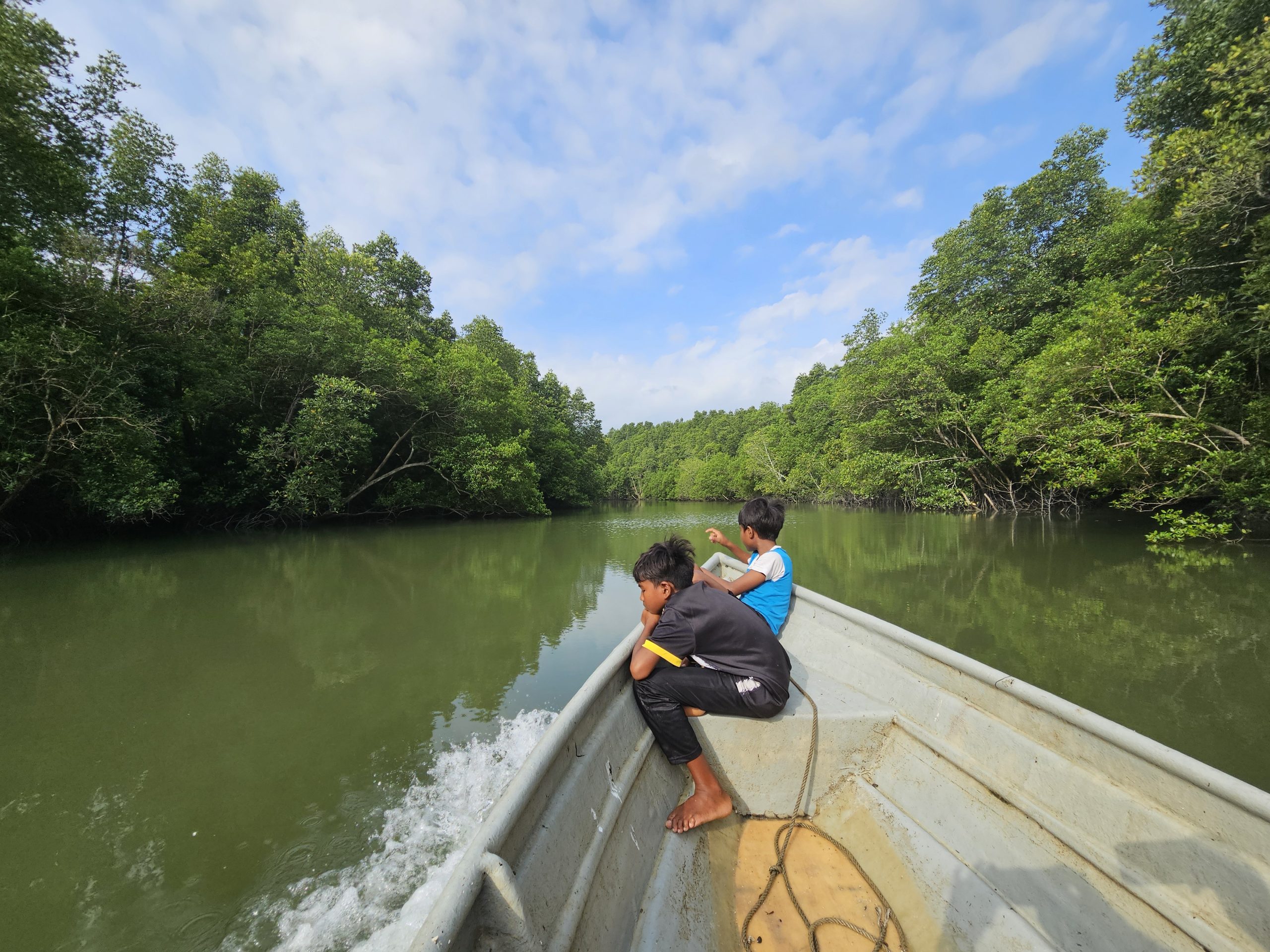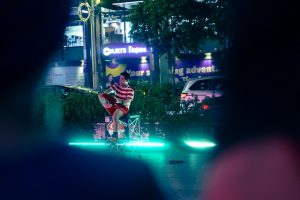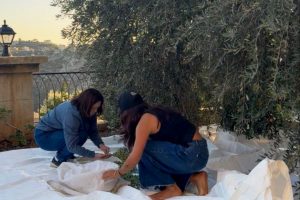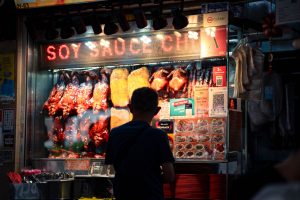All images courtesy of Drama Box; rehearsal photos by Joseph Nair
From the way history has been taught in Singapore, we might not realise that a plethora of cultures and religions are indigenous to Singapore and Malaysia. One of these underrepresented ethnic groups is the Orang Seletar.
While you and I might be used to dry land and concrete abodes, these sea nomads feel more at home living on boats and constantly sailing.
When playwright Zulfadli Rashid and his collaborators first visited the Orang Seletar, they were greeted by unusual sights like placentae hanging in plastic bags at the beach and helmets with mementos of deceased persons.
They recount how amazed they were as the Orang Seletar showed them their distinct heritage and age-old practices.
The Orang Seletar’s name is derived from the Seletar region of Singapore. Seletar might have also been derived from selat, the Malay word for “straits”. These seafarers once inhabited both Seletar and the straits between Johor and Singapore. However, they are no longer welcome to dock in Singapore; they even risk arrest should they sail into Singapore waters.
The separation of these seafarers from their native land, and waters, is exacerbating the diminishment of their culture. They also no longer have access to many beaches in Johor, which are essential to their way of life and livelihoods.
The struggles of this community inspired Zulfadli and co-directors Adib Kosnan and Kok Heng Leun to put on a play, entitled Air, in hopes of raising awareness for the Orang Seletar. Air (the Malay word for water) is part of a season of theatre productions entitled Fault Lines.
Fault Lines is the second part of the Land trilogy in Esplanade’s contemporary theatre season entitled The Studios. The Studios 2024 invites one and all to consider the world today, to examine the powerful forces that shape our trajectories as individuals, communities, societies and nations.
Coastal Natives with No Legal Claim
While many historians might argue that oral history is a less than perfect way of passing down stories, it is difficult to explain how the Orang Seletar all across Johor recount the same story of the founding of Singapore.
According to them, the Orang Seletar had docked on the island of Singapore to hunt wild boars when they came across a lion-looking creature and decided to name the island Singa Pulau, or ‘Lion Island’. This was the name that the Orang Seletar conveyed to Sang Nila Utama when the Palembang prince arrived on the island and declared himself as the founder.
Having lived in this region since time immemorial, the Orang Seletar tell another shared story of a great flood that rose to the highest mountain and dispersed them across Johor and Singapore.
“When I visited different Orang Seletar communities, they all told these same stories,” divulges Adib. He struggled to communicate with the Orang Seletar because Malay is not their first language, but his intrigue spurred him to learn more.
The Orang Seletar have their own language, which has been included by UNESCO in the list of languages that are at serious risk of disappearance.
Adib would learn that the Orang Seletar are not just adept fishermen but also free divers. They hold their breaths for extended periods when they dive off the Johor coasts in search of shellfish. They know different nautical habitats like the back of their hand, and can tell you what seafood can be foraged from each habitat.
Besides docking to trade, hunt and buy supplies, the Orang Seletar would also go ashore to bring their freshest fish as tribute to the sultan and sell the rest at markets on terra firma. These tribes even recounted to Zulfadli, Adib and Heng Leun how they miss certain types of fish that swim off the coast of Seletar.
“They can’t return to Singapore because they are not recognised as Singapore citizens, even though they were here before anybody else,” says Adib.
Many Singaporean Orang Seletar were rendered stateless after Singapore declared independence and implemented state lines with Malaysia in the 1960s and 70s. They had no choice but to occupy other parts of Johor.
“It made me think about nations carved out by lands and borders. The idea of borders is a cause of conflict. Say, if a fish swims from Johor to Singapore and I catch it, you can’t say to me ‘Why did you catch my Johor fish?’” Heng Leun remarks.
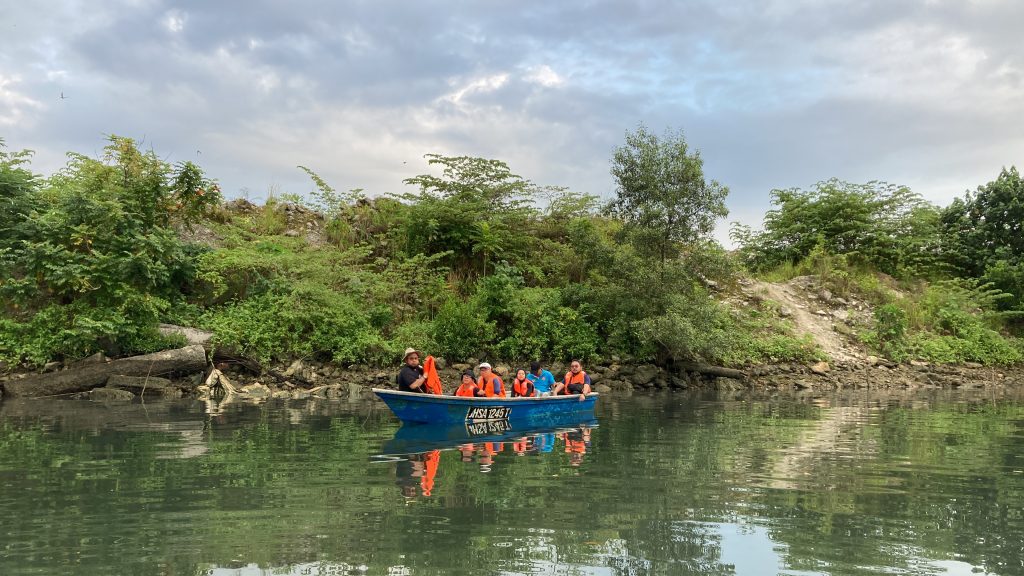
A Distinct Culture
Besides professing a unique religion and speaking a dying language, the Orang Seletar have many captivating practices that distinguish them. The plastic bags containing placentae that Air’s artists saw, for example, is a superstitious practice. The placenta of a newborn is hung this way above the tide, and should it drop or submerge, the Orang Seletar regard those as inauspicious omens of that newborn’s life ahead.
The guarded natives did not allow the artists to visit their burial grounds at first, but upon subsequent visits, they brought these artists to see their graveyards. The Orang Seletar showed them hollowed coconut husks in which they place mementos of the dead to both mark the grave and commemorate the person. As times changed, it became acceptable to use a helmet in place of a coconut husk.
Zulfadli also highlights that they have many ancestors buried off the coast of Sungei Buloh.
“When they are unable to access certain burial sites, they will make prayers and offerings as near as they can to that burial site,” he says.
These animists and practitioners of ancestral worship have many folklorist rituals that Malay Muslims might deem as black magic, so these natives kept mum when the artists asked about these ceremonies.
Fish out of Water
One of the nine landed settlements allotted to the Orang Seletar is Sungai Temon, a river in Malaysia.
However, the State of Johor recently granted this land to Chinese developers, who sent sand barges to its mangroves. This sand slowly silted into the sea and affected the Orang Seletar’s harvest of prawns and mussels. It also restricted the waters where the Orang Seletar could dive for shellfish. To make matters worse, it encouraged crocodiles to come closer to the Orang Seletar’s settlements and even closed off a tributary linking two villages.
“Their beaches were polluted by new factories and ports,” Heng Leun recalls. “The smell of the pollution was really strong.”
As the authorities took back this prime real estate and forced the Orang Seletar to relocate further inland, Adib noticed the Orang Seletar being pushed further away from hospitals and schools, too.
“It’s not right to separate these sea people from the sea,” chimes Adib.
“If you get to know them, they are always doing something involving the sea. It’s not just picking oysters from their nets and spearfishing. They do many things with the sea that sustain them financially, emotionally and spiritually.”
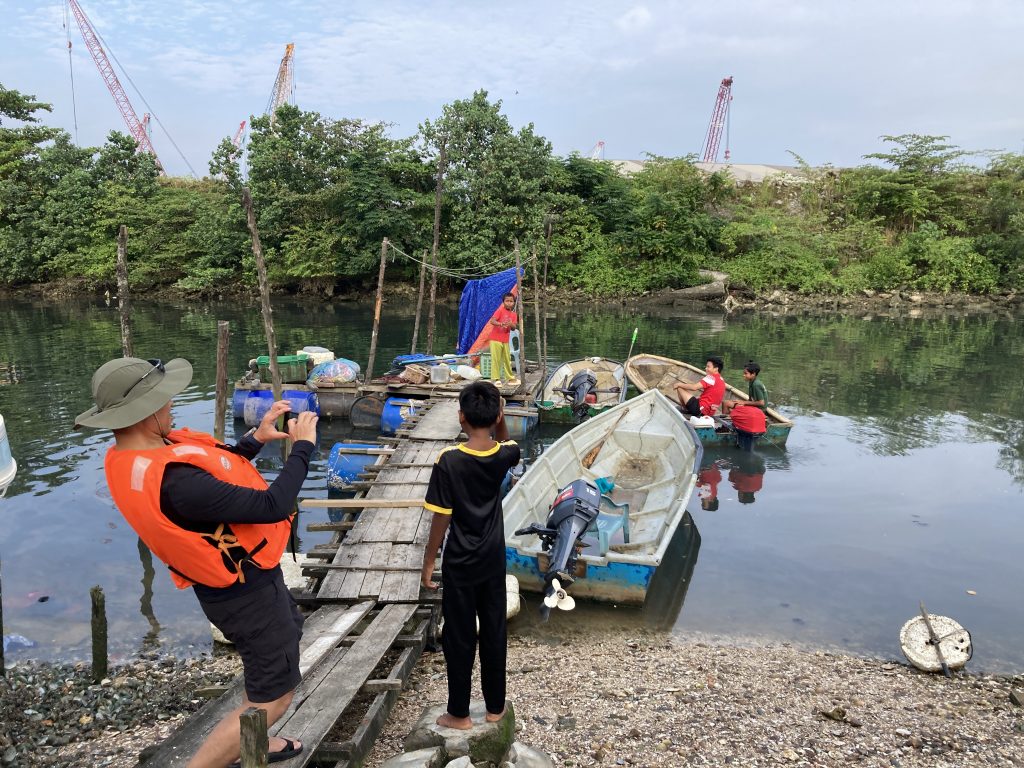
Racial Discrimination
The Orang Seletar have not received a warm welcome on dry land either. Many mainlanders look down on these simple subsistence fishermen who usually have no material goals.
“Locals we spoke to perpetuate this narrative that the Orang Seletar are backward and don’t know the value of money,” notes Heng Leun.
“In actual fact, they have their own way of life and their own ideas of contentment. The challenge is, how do they continue this way of life?”
The Orang Seletar disclosed that their children, too, face similar discrimination when they enrol in local schools.
“Acknowledging that not all indigenous people are backward is key to these people living with dignity in this region and around the world,” he proffers.
Adib observed that many tribes like the Orang Seletar do not enjoy the full rights of a bumiputera (“indigenous Malaysians”).
“The stereotype of the Orang Seletar is a native who is always asking for handouts, but none of the mainlanders we spoke with have actually seen Orang Seletar begging,” reveals Zulfadli.
The Malaysian government had previously planned to roll out concrete plans that would benefit the Orang Seletar. However, the reins of power in Malaysia have changed hands several times in recent years, resulting in a revolving door of lawmakers who have not been able to turn words into actions.
“The Orang Seletar face so many restrictions by a world that is rapidly advancing, but their attitude is ‘it’s ok, we’ll find ways to deal with it’. They know that they have to fend for themselves come what may. This strength and resilience inspired me to put on Air.”
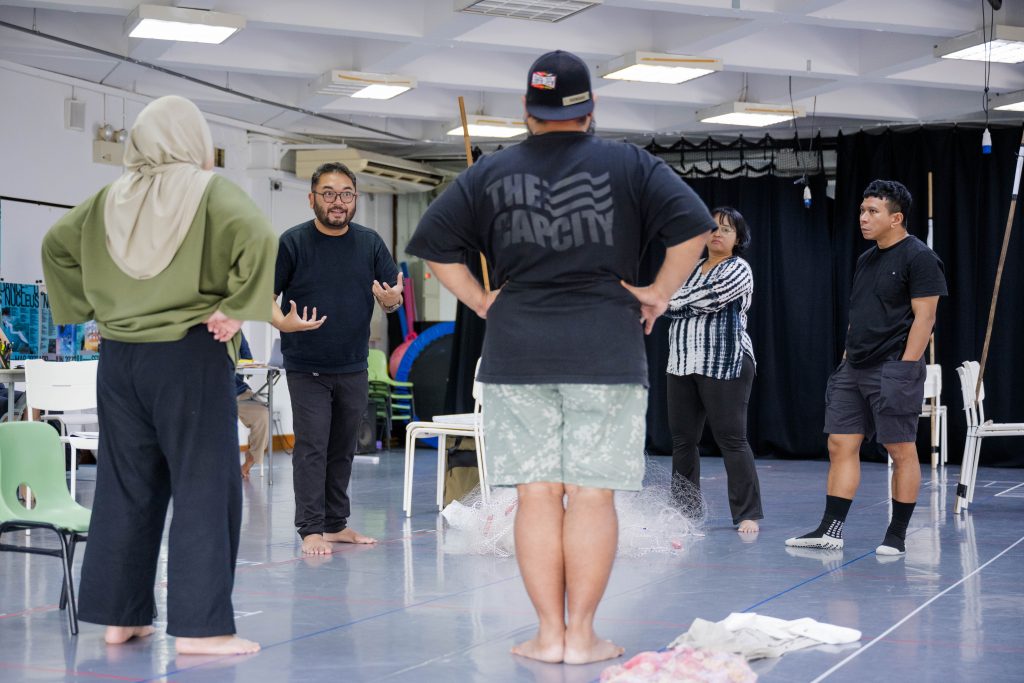
A Necessary Staging
Zulfadli, Adib and Heng Leun sought actors with deep empathy to do the Orang Seletar justice, which led them to seek out Dalifah Shahril and Suhaili Safari, who are known for their emotive and nuanced performances. Dalifah and Suhaili were part of the previous iteration of this play entitled Tanah•Air.
Air’s cast also includes Rizman Putra and Saiful Amri, both revered stage actors in the industry. Through auditions, Rizman and Saiful impressed the playwright and co-directors with their ability to tell the Orang Seletar story from new perspectives.
“I think the audience of Air will feel a strangeness at first because this is a relatively unknown community. However, the audience can expect Air’s stories to powerfully convey the Orang Seletar’s experiences and displacement.”
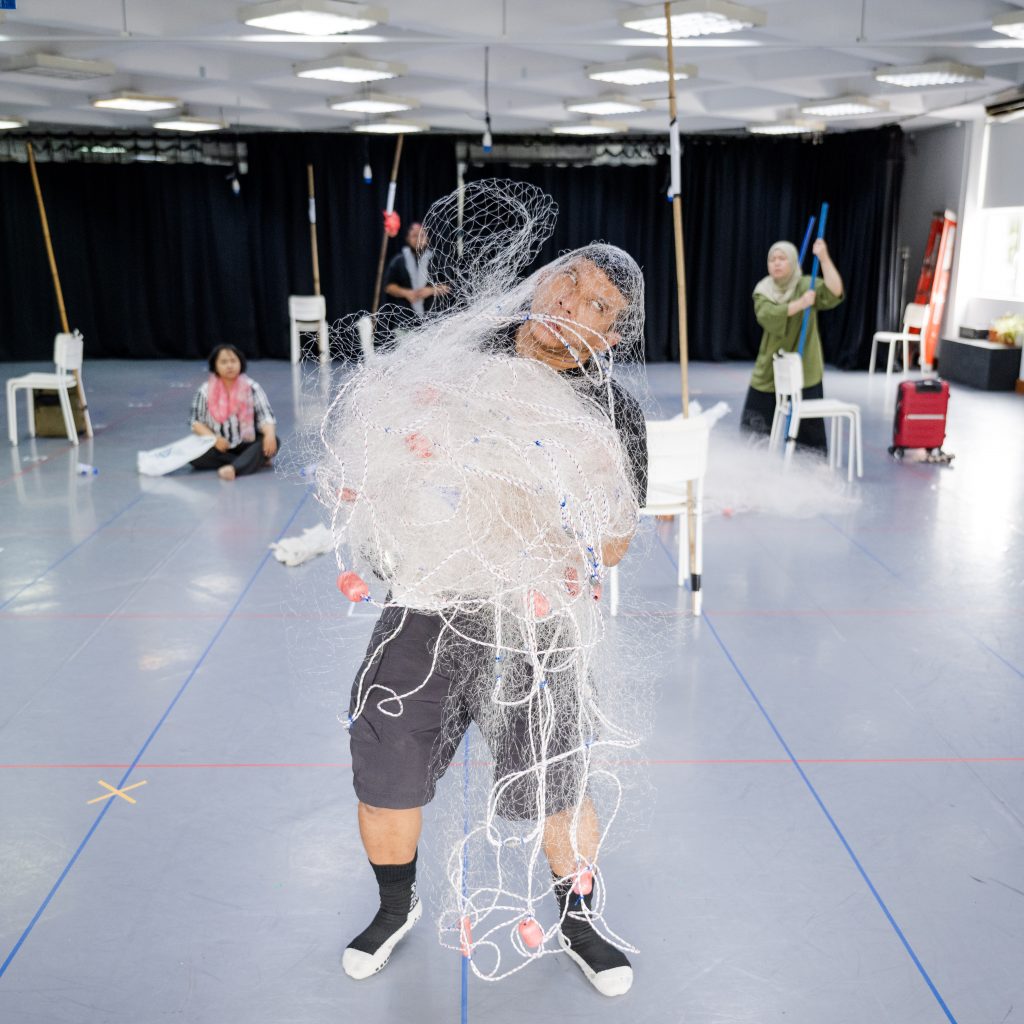
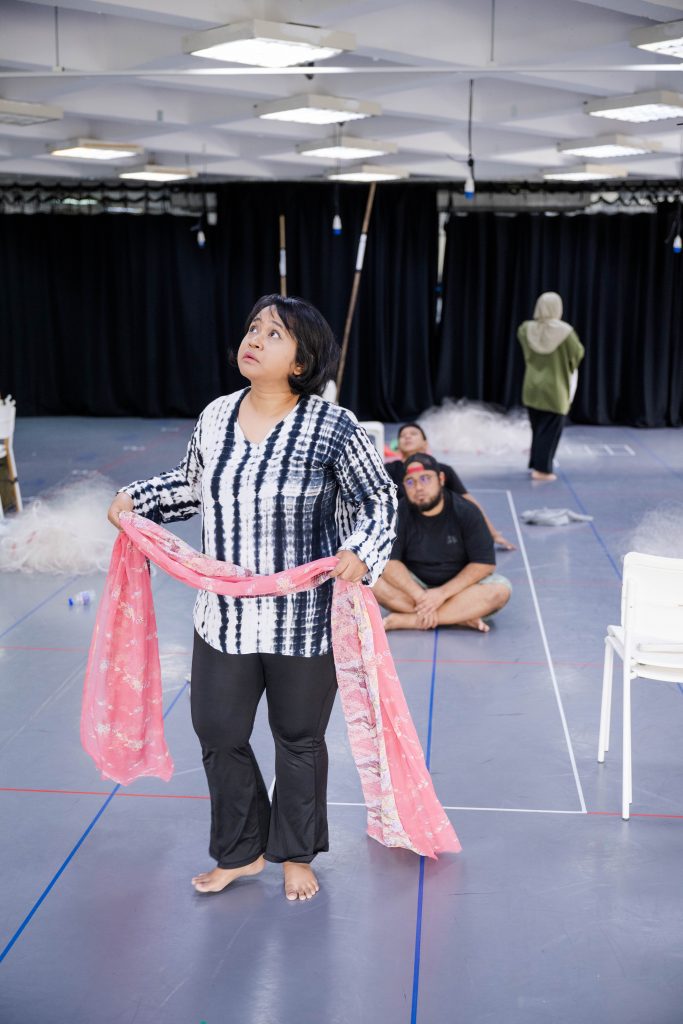
“The Orang Seletar hearing the call of the sea is as natural as Asians’ inclination to eat rice,” recounts Zulfadli from his close observations.
“But they don’t have a loud voice in this society. Today, you can see young Orang Seletar jumping into the sea at any time of day, but it seems like their descendants might not even know the joys of the sea.”
He adds that the Orang Seletar are often grouped together with other indigenous peoples as Orang Asli (“native people”), and their culture has been white-washed by a broad brush.
In Singapore, too, Zulfadli laments that the Orang Asli are often allotted a measly sentence in history textbooks and sometimes none at all.
“We are often told that we are a migrant nation, which undermines the people who were here before us,” emphasises Zulfadli.
“In the future, when people look up theatre productions that are held at the Esplanade, I would like them to discover Orang Seletar and Air.”
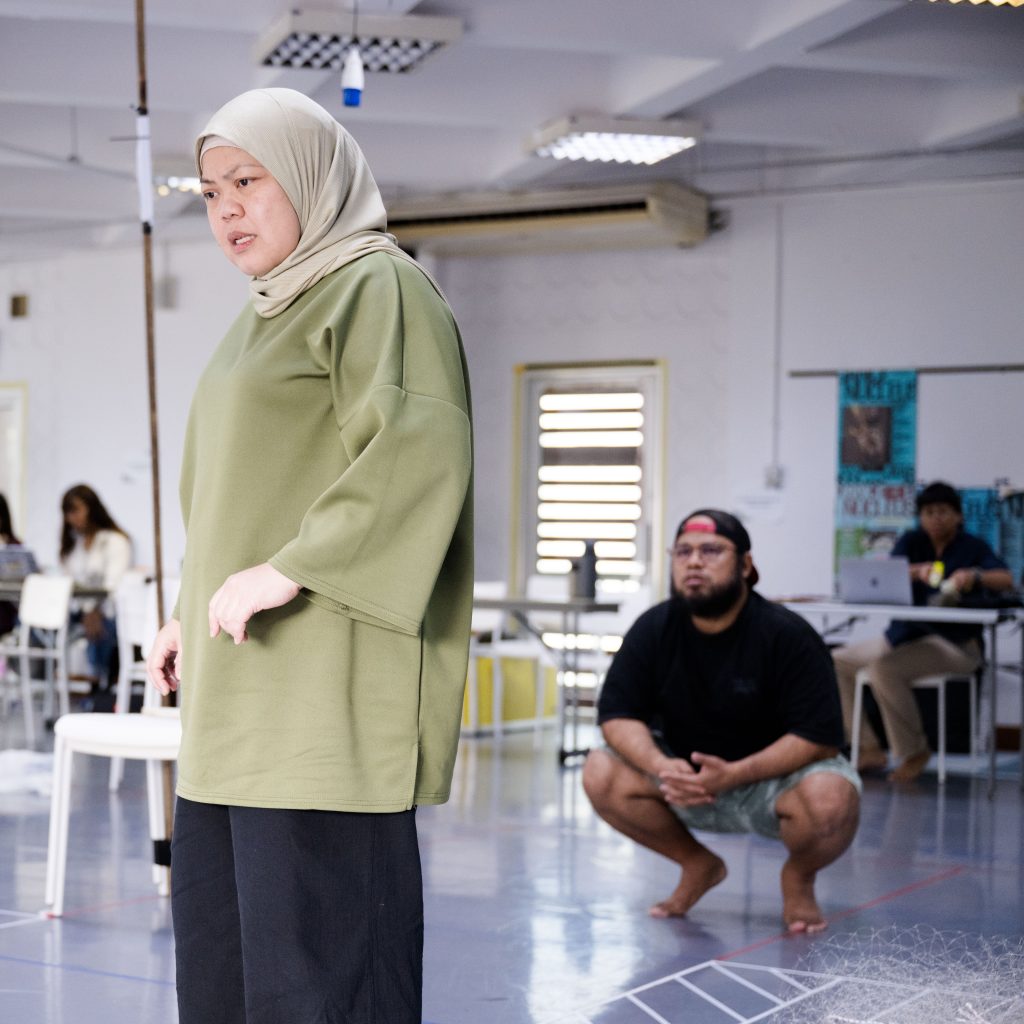
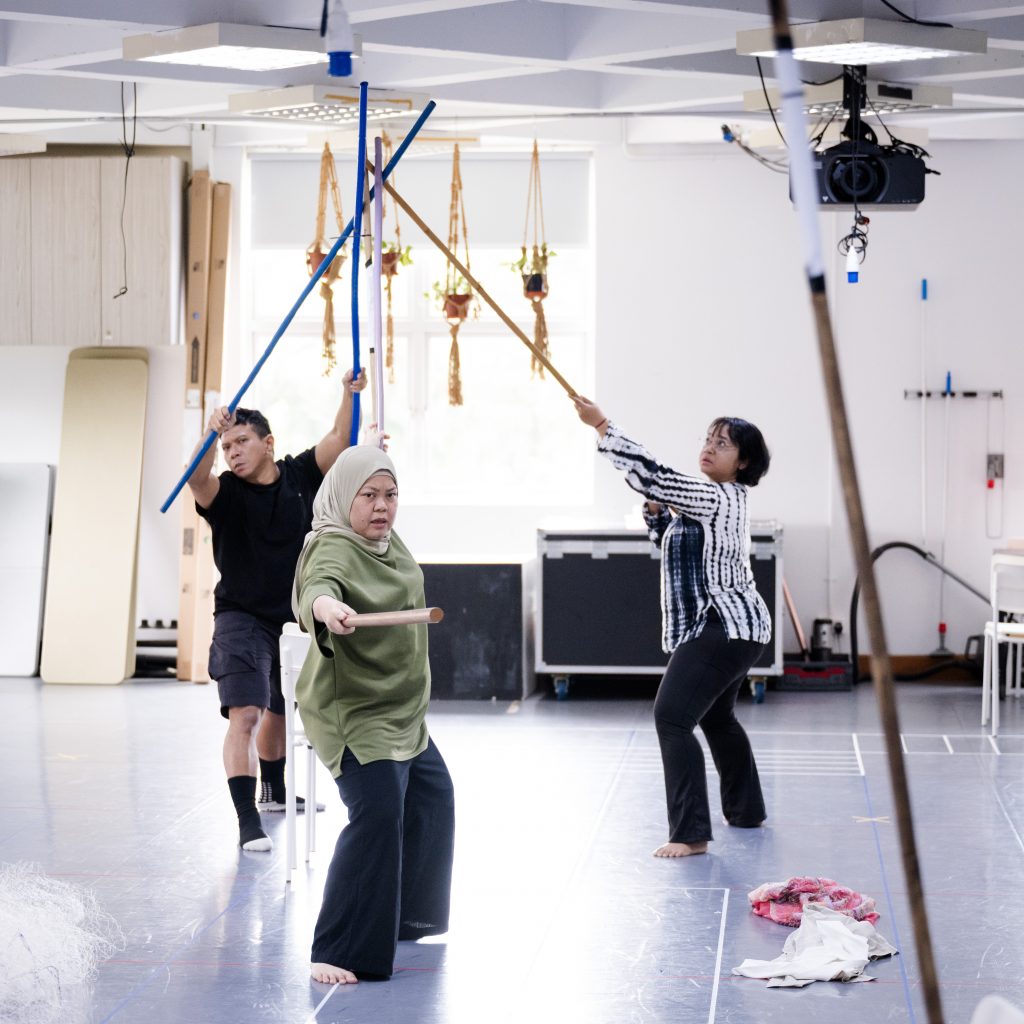
Adib wants audiences to know about these native Singaporeans are just a few kilometres away.
“I didn’t even have to turn on my roaming when I visited one nearby Orang Seletar village because I was still connected to my local network in Singapore,” Adib reveals.
“We and the Orang Seletar were separated by a fork in the road, but they yearn to come back. The tribe elders vividly remember how Singapore’s beaches and fish species look. This deep appreciation for Singapore is why I felt the need to put on Air.”
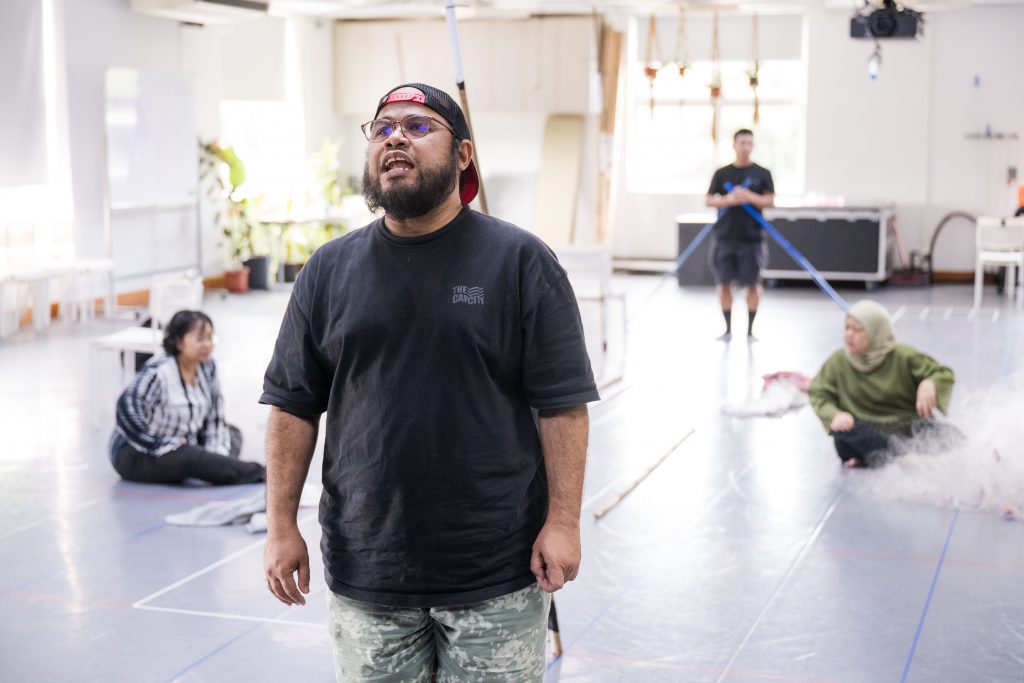
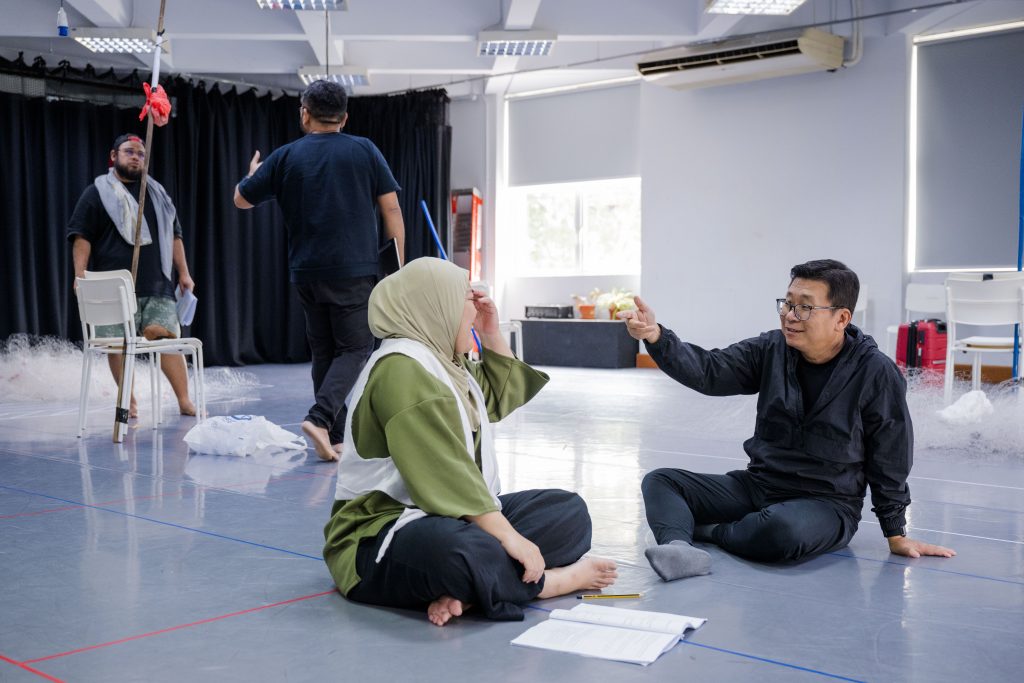
Heng Leun says that his “mind was blown” when he first found out about the Orang Seletar.
“It was like a huge hole in our history that I didn’t know about, and I felt drawn to understand more about them,” he says.
“Our theatre company has made many works about land and contestations, and I hope that audiences learning about the continual displacement of the Orang Seletar, will also draw comparisons to what is happening to other minorities in other parts of the world.”

